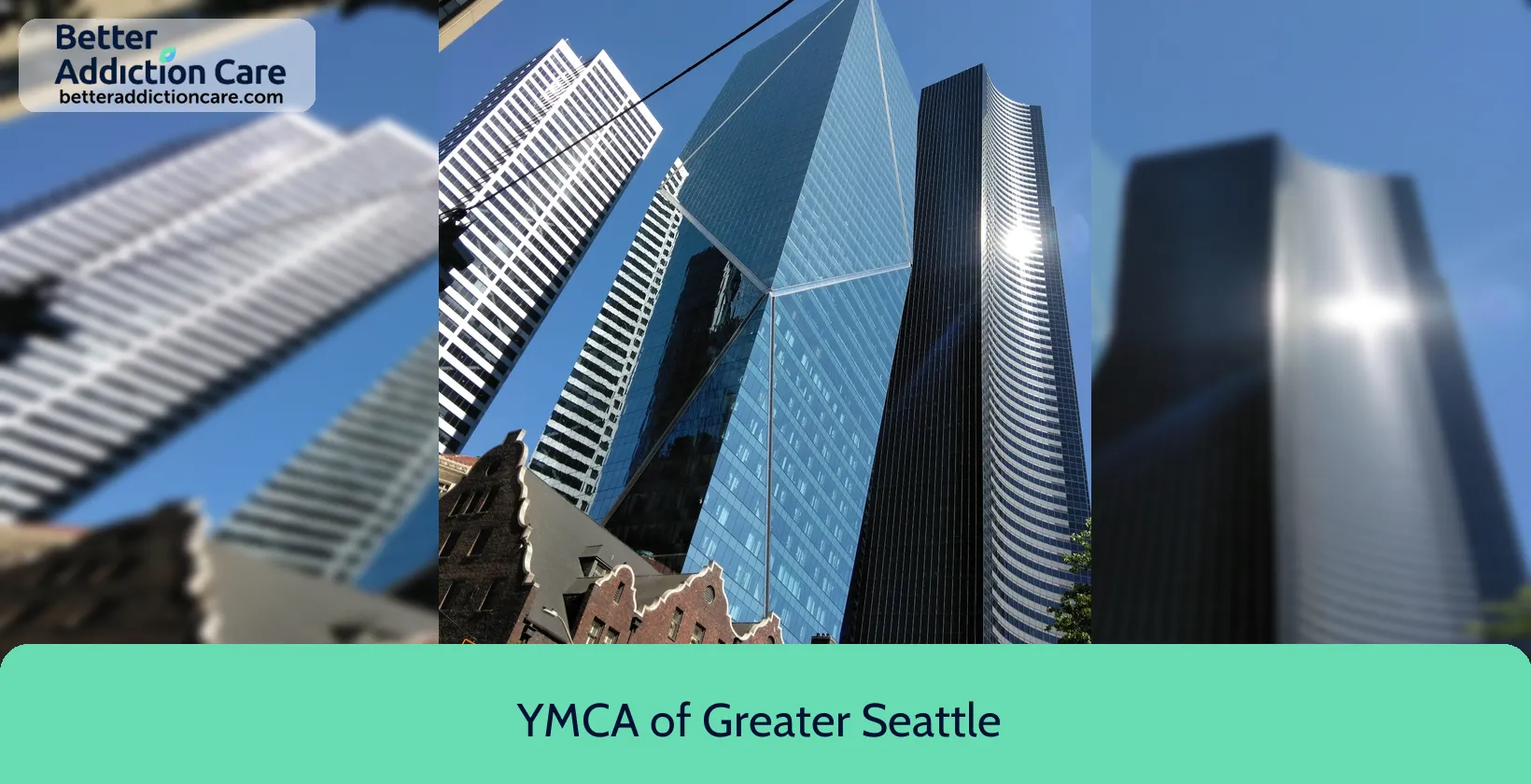YMCA of Greater Seattle - Social Impact Center Behavioral Health
Overview
YMCA of Greater Seattle - Social Impact Center Behavioral Health is a substance abuse treatment center for people seeking treatment near King County. As part of their treatment modalities for recovery, YMCA of Greater Seattle - Social Impact Center Behavioral Health provides individual psychotherapy, couples/family therapy, and cognitive behavioral therapy during treatment. YMCA of Greater Seattle - Social Impact Center Behavioral Health is located in Seattle, Washington, accepting cash or self-payment for treatment.
YMCA of Greater Seattle - Social Impact Center Behavioral Health at a Glance
Payment Options
- Cash or self-payment
- Medicaid
- Private health insurance
- Other State funds
- County or local government funds
Assessments
- Screening for tobacco use
- Comprehensive mental health assessment
- Comprehensive substance use assessment
- Outreach to persons in the community
- Screening for mental disorders
Age Groups
- Adolescents
- Young adults
- Children/adolescents
- Adults
- Seniors
Ancillary Services
- Assertive community treatment
- Intensive case management
- Case management service
- Family psychoeducation
- Suicide prevention services
Highlights About YMCA of Greater Seattle - Social Impact Center Behavioral Health
7.05/10
With an overall rating of 7.05/10, this facility has following balanced range of services. Alcohol Rehabilitation: 8.00/10, Drug Rehab and Detox: 6.00/10, Insurance and Payments: 6.00/10, Treatment Options: 8.18/10.-
Treatment Options 8.18
-
Alcohol Rehabilitation 8.00
-
Drug Rehab and Detox 6.00
-
Insurance and Payments 6.00
Accreditations
State department of health:

Government agencies issue State Licenses, granting permission to rehabilitation organizations to conduct their business operations lawfully within specific geographic regions. Generally, the particular rehabilitation programs offered by a facility and its physical location dictate the necessary licenses needed for legal operation.
Council on Accreditation (COA):
The Council on Accreditation (COA) is a non-profit that provides accreditation to human services organizations to ensure they meet high standards in service delivery. The accreditation process involves evaluating the organization's policies, practices, and services to meet specific standards.
Treatment At YMCA of Greater Seattle - Social Impact Center Behavioral Health
Treatment Conditions
- Alcoholism
- Mental health treatment
- Substance use treatment
- Co-occurring Disorders
Care Levels
- Outpatient
- Intensive outpatient treatment
- Regular outpatient treatment
- Aftercare
Treatment Modalities
- Individual psychotherapy
- Couples/family therapy
- Cognitive behavioral therapy
- Dialectical behavior therapy
- Integrated Mental and Substance Use Disorder treatment
Ancillary Services
Additional Services
- Pharmacotherapies administered during treatment
- Mentoring/peer support
- Drug or alcohol urine screening
Special Programs
- Clients who have experienced trauma
Contact Information
Read our Most Recent Article About Drug Addiction
DISCLAIMER: The facility name, logo and brand are the property and registered trademarks of YMCA of Greater Seattle - Social Impact Center Behavioral Health, and are being used for identification and informational purposes only. Use of these names, logos and brands shall not imply endorsement. BetterAddictionCare.com is not affiliated with or sponsored by YMCA of Greater Seattle - Social Impact Center Behavioral Health.









